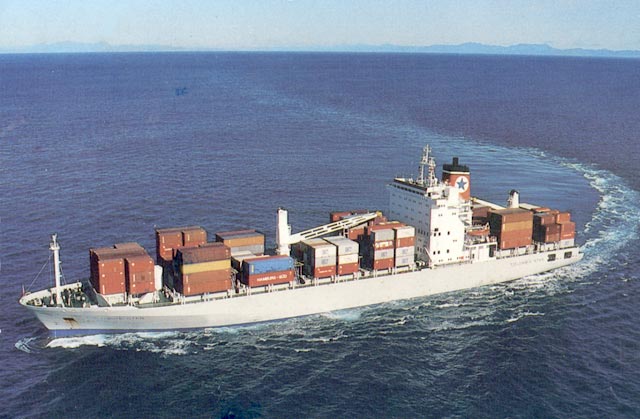 That’s right. All those goods you’re paying to get for cheap from China. Those winter blueberries from Argentina. South African wines. Well, they come with a hidden cost. Pollution from marine shipping causes approximately 60,000 premature cardiopulmonary and lung cancer deaths around the world each year, according to a study from the Rochester Institute of Technology. The researchers correlated the global distribution of particulate matter—black carbon, sulfur, nitrogen and organic particles—released from ships’ smoke stacks with heart disease and lung cancer mortalities in adults. Worse still, the predicted growth in shipping could increase annual mortalities by 40 percent by 2012.
That’s right. All those goods you’re paying to get for cheap from China. Those winter blueberries from Argentina. South African wines. Well, they come with a hidden cost. Pollution from marine shipping causes approximately 60,000 premature cardiopulmonary and lung cancer deaths around the world each year, according to a study from the Rochester Institute of Technology. The researchers correlated the global distribution of particulate matter—black carbon, sulfur, nitrogen and organic particles—released from ships’ smoke stacks with heart disease and lung cancer mortalities in adults. Worse still, the predicted growth in shipping could increase annual mortalities by 40 percent by 2012.
“Our work will help people decide at what scale action should be taken,” says James Corbett of the University of Delaware. “We want our analysis to enable richer dialogue among stakeholders about how to improve the environment and economic performance of our freight systems.”
Julia Whitty is Mother Jones’ environmental correspondent. You can read from her new book, The Fragile Edge, and other writings, here.











